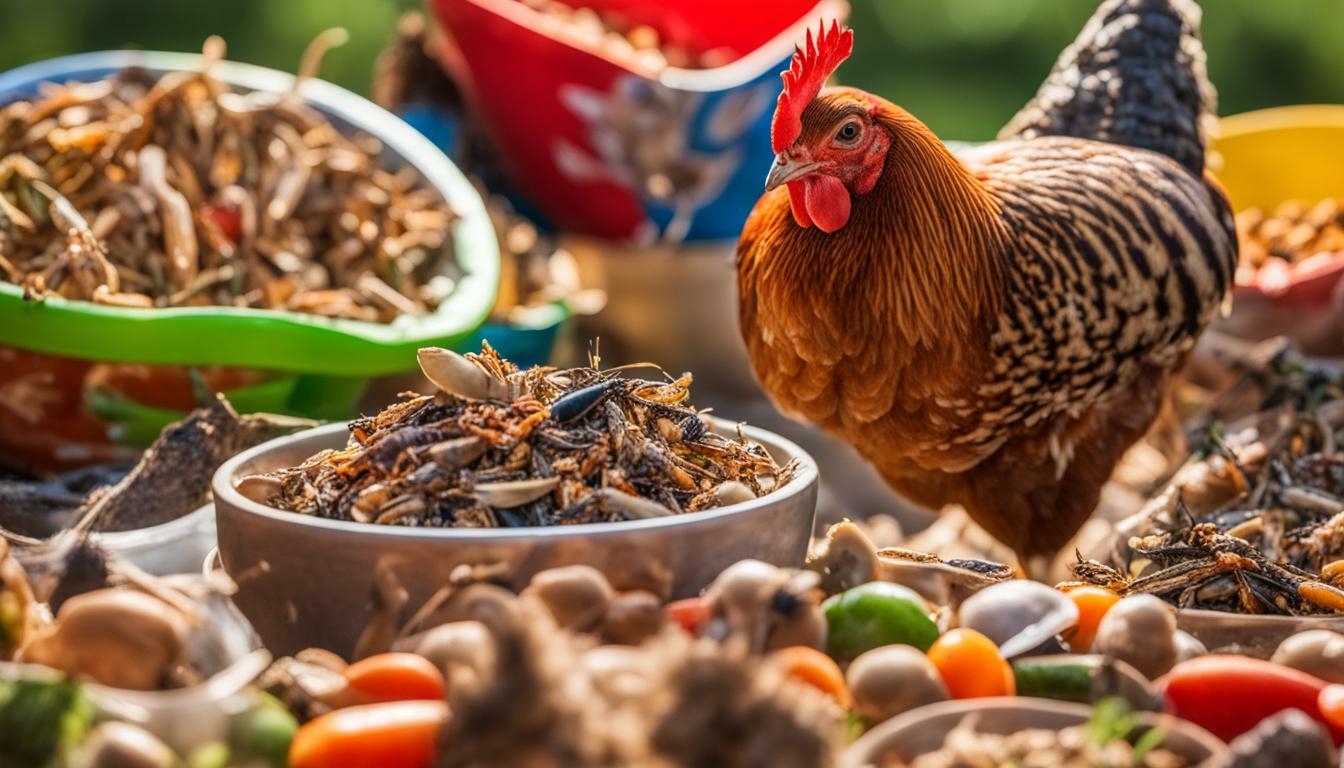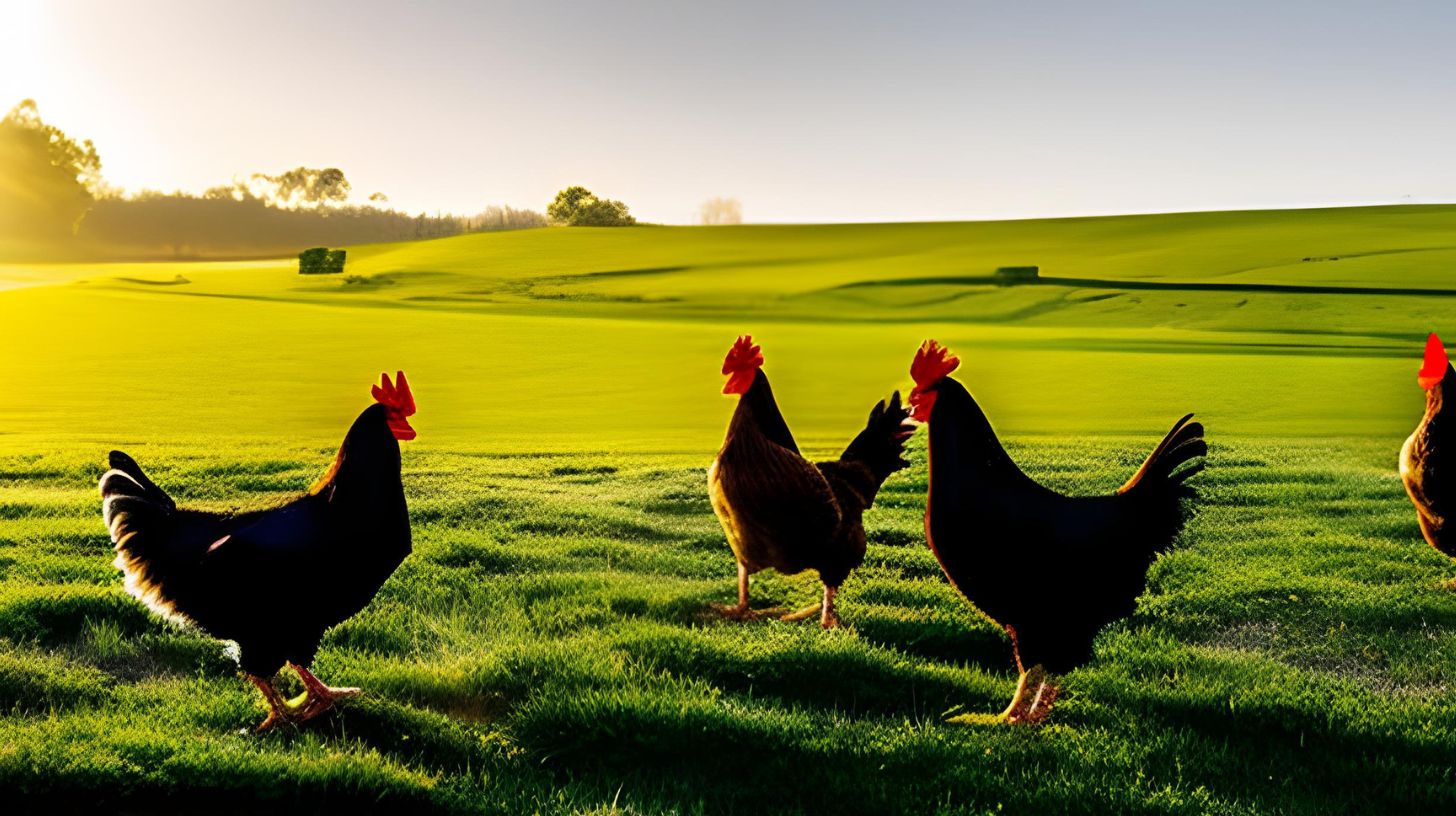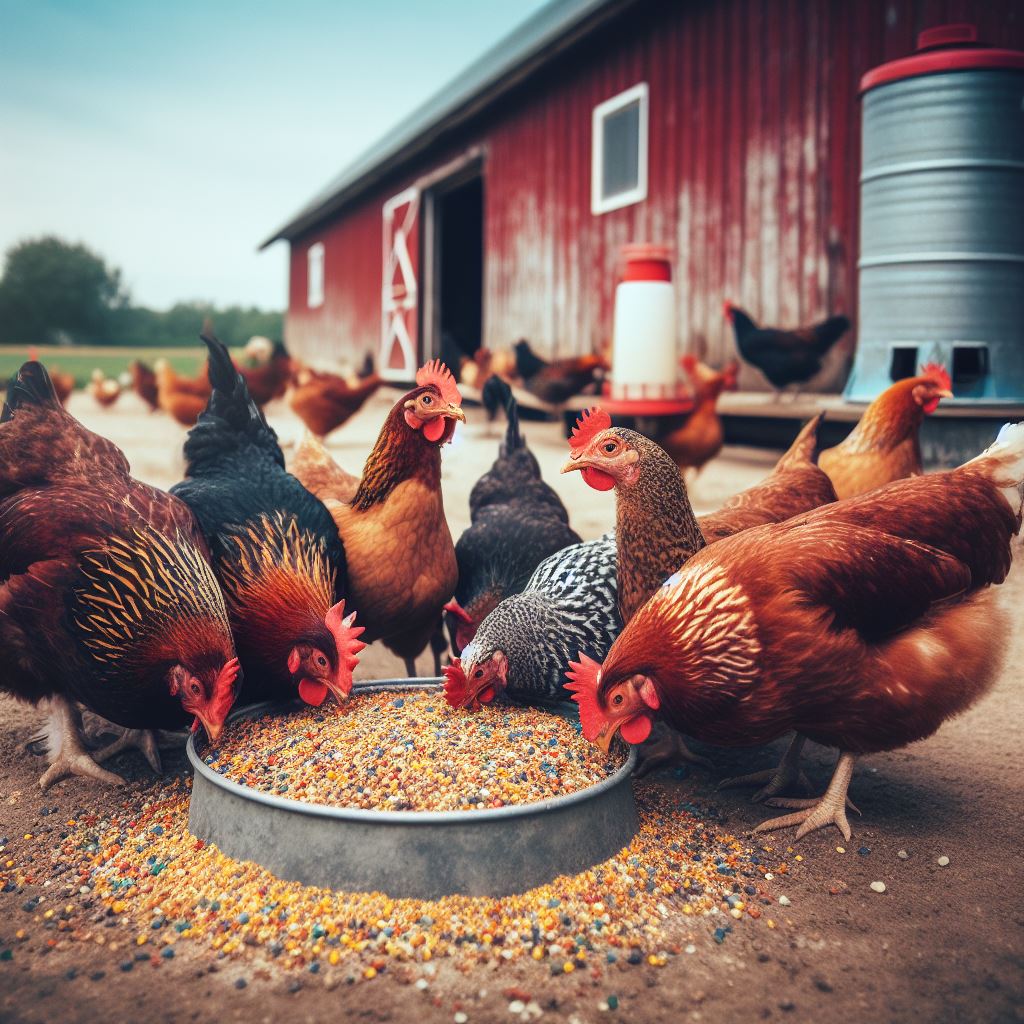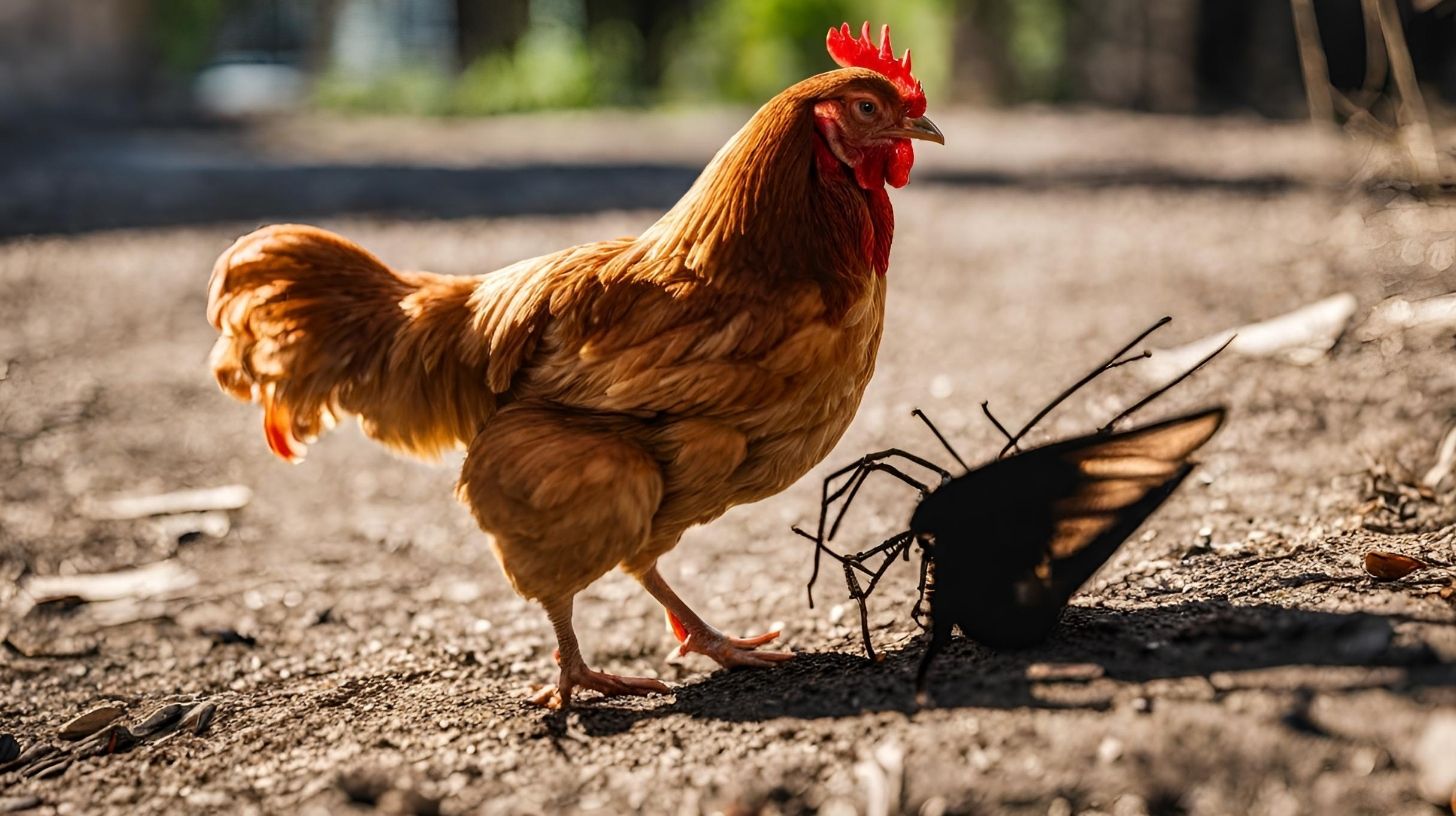Do Chickens Eat Crickets? Your Friendly Guide to Poultry Diets

Table of content:
Crickets make a fun, nutritious treat and supplement for backyard chickens. If you’ve been wondering “Do chickens eat crickets?” the answer is a resounding yes! Chickens absolutely love crunching on these chirping critters.
Crickets offer a tasty source of extra protein, vitamins, minerals, and nutrients to round out your flock’s diet. They also provide some added variety and enrichment. When fed in moderation, crickets can be a healthy part of your chickens’ menu.
In this article, we’ll dive into everything you need to know about feeding crickets to chickens. We’ll cover:
- What chickens typically eat
- The benefits of feeding crickets
- How many crickets chickens should eat
- Potential risks of feeding too many crickets
- And where to buy crickets for your flock
Let’s take a closer look at the role crickets can play in your chickens’ diet and health.
What Do Chickens Normally Eat?
Chickens are omnivores, meaning they eat both plant and animal matter. Their diet in the wild would consist of seeds, grains, fruits, vegetables, grasses, worms, insects, and small vertebrates.
When raising chickens, it’s ideal to try to mimic some of the variety they’d encounter in nature. The bulk of their diet should consist of a complete, balanced chicken feed or pellets to provide all of their nutritional needs.
Beyond their main feed ration, chickens also appreciate supplements like:
- Fresh fruits and vegetables – favorites include leafy greens, squash, berries, and melons
- Healthy table scraps – bits of plain grains, beans, pasta, bread
- Foraging treats – chance to dig through piles of leaves, dirt, or compost
- Protein-rich bugs and worms – including crickets!
Adding some diversity through extras like crickets helps provide mental stimulation and prevent boredom. The hunting and pecking keeps chickens active and engaged.
Why Are Crickets Good For Chickens?
Crickets make a very healthy, natural snack for backyard chickens. Here are some of the top benefits crickets offer:
High in Protein – Crickets contain about 12-25% protein, giving them more protein per gram than steak! The protein helps chickens maintain muscle mass and keeps eggs productive.
Nutrient-Dense – Crickets provide a wealth of vitamins and minerals like calcium, iron, zinc, vitamin B12, and other nutrients chickens need. Calcium supports bone health and egg shell strength.
Supports Weight Gain – The rich protein and nutrient profile of crickets makes them great for underweight or recovering chickens who need help putting on some pounds. Crickets offer a calorie and protein boost.
Promotes Foraging – When you scatter crickets in the run, chickens eagerly scratch and peck to hunt them down. This satisfies their foraging instinct and keeps them active.
Adds Variety – Insects like crickets add diversity to diet that goes beyond plain feed. Variety alleviates boredom and keeps the digestive system working optimally.
Enhances Flavor – Some chicken keepers report crickets passing along a pleasant, nutty flavor to eggs or meat. The varied diet may boost taste.
Crickets are like a multivitamin that chickens love gobbling up. Fed 2-3 times per week, they can complement your chickens’ diet.
How Many Crickets Can Chickens Eat?
When served in moderation, crickets make a fine supplement. But it is possible to go overboard. Follow these feeding guidelines for crickets:
- Start Slowly – Introduce crickets gradually to let chickens acquire the taste. Only offer a few at first.
- Feed 2-3x Per Week – Aim to feed crickets a couple days a week as an extra protein source.
- 15-20 Crickets Per Chicken – For full sized chickens, about 15-20 crickets per bird per feeding is sufficient. Adjust amounts by size and appetite.
- No More Than 50 Per Day – Feeding more than 50 crickets in one day to a single chicken can risk health issues.
- Scatter in Run – Spread crickets out so chickens hunt and don’t gorge. Don’t pile them in one spot.
- Ensure A Balanced Diet – Crickets complement but don’t replace complete feed. Make crickets just part of varied nutrition.
- Assess Condition – Obese or overweight chickens do not need extra protein or calories from crickets. Only feed to chickens in good body condition.
Following these tips will allow you to safely integrate crickets as a healthy, natural supplement without overdoing it. Pay attention to your chickens’ body condition and behavior to adjust amounts as needed.
Potential Risks of Too Many Crickets
Feeding chickens an excessive amount of crickets could cause some potential health problems. Issues might include:
- Obesity – Too many high protein, high calorie crickets can quickly lead to weight gain and obesity if chickens are not active enough to burn the extra energy.
- Nutritional Imbalances – Chickens could start filling up on crickets instead of their complete feed, throwing off the ideal nutritional ratios they need.
- Internal Egg Laying – A very high protein diet has been linked to hens accidentally laying eggs inside their abdominal cavity instead of the oviduct.
- Dehydration – Crickets have a drying effect. Eating too many may cause chickens to become dehydrated if they do not also drink enough water.
- Tainted Crickets – Crickets gathered from the wild or unsanitary sources may harbor parasites, pesticides or other contaminants that could make chickens sick.
- Blockages or Choking – Eating too many crickets too quickly could potentially cause crop or gizzard impactions or choke chickens.
- Cannibalism – Chickens may pick at and consume crickets even after they die, which could lead to injurious pecking habits.
With moderation, none of these issues are likely. But it’s important to keep an eye out and adjust amounts downward if any problem behavior develops.
Where to Buy Crickets for Chickens
If you’d like to purchase live crickets to feed your flock, here are some options:
- Pet stores – Many pet stores sell live crickets in small containers as reptile or bird feed. Call ahead to check availability and pricing.
- Bait shops – Some fishing bait shops sell crickets, though these may have more parasites than crickets bred as feeders.
- Online – Large online retailers may offer bulk quantities of live crickets for home delivery.
- Chicken feed stores – Many farm stores are now stocking live chicken-safe crickets.
Another option is to try breeding your own crickets! This takes more effort but can provide a free, ongoing supply. Use special cricket habitat containers and follow tips for cricket care.
Look for:
- Crickets bred specifically for animal feed or human consumption
- Clean crickets without noticeable parasites
- Smaller cricket sizes – 1/4″ to 1/2″
- Crickets not given antibiotics or hormones
- Organically raised feeder crickets when available
Properly sourced crickets from reputable sellers make the safest, healthiest treats.
Feeding Crickets to Chickens: Final Thoughts
When included as part of a balanced diet 2-3 times per week, nutritious crickets can be a great supplemental food for backyard chickens. Chickens relish chasing down and devouring these crunchy, protein-packed snacks.
In moderation, crickets have many benefits for chickens. But be careful not to overdo it with too many crickets as this could lead to health problems. Follow suggested feeding guidelines for the safest results.
Observe your flock as you add crickets. Pay attention to weight, egg laying, foraging habits and overall health. Adjust amounts as needed to maintain a healthy diet and active chickens.
If you have any other questions about feeding crickets or the ideal diet for your flock, consult your local agricultural extension or speak with a poultry nutritionist. With a little thoughtful management, crickets can be a sustainable and nutritious backyard chicken treat!
Welcome. I’m Adreena Shanum, the proud owner of this website, and I am incredibly passionate about animals, especially poultry. I founded adreenapets.com as a labor of love, stemming from my desire to share my knowledge and experiences with poultry enthusiasts worldwide.




